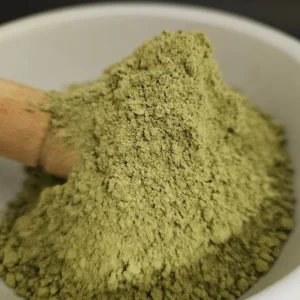As we all know, Kratom has recently been famous for its various uses and effects; while people appreciate its ability to improve overall well-being, one side effect that often comes up is Kratom constipation. Many Kratom users, especially those new to it, may find themselves facing this uncomfortable issue.
Suppose you are wondering how Kratom can cause constipation and how you can relieve it. In that case, this article will take you through the reasons behind it and, most importantly, how to ease the discomfort naturally and effectively.
Can Kratom Cause Constipation?
Yes, Kratom can indeed cause constipation. This side effect stems from how Kratom interacts with your digestive system; although Kratom is derived from a plant, it can still have powerful effects on bodily functions, including digestion. Many users report that their bowel movements slow down or even stop when they use Kratom. Understanding why this happens is the first step in addressing the problem.
What Are the Reasons for Kratom Constipation?
Kratom constipation can occur for several reasons. Knowing the contributing factors can help you make small changes to prevent or reduce the side effects.
1. Slowed Digestive Function
One primary reasons for Kratom constipation is that it slows down the digestive process. This isn’t unique to Kratom, as many similar substances can have a relaxing effect on the gut, but it can make passing stool more difficult. Your digestive system needs a regular rhythm to push waste through, and if that slows down, constipation is likely.
2. Lack of Hydration
As doctors say, hydration keeps the digestive system moving smoothly. Kratom can dehydrate your body, especially when taken in higher amounts or more frequently. If you are not drinking enough water, your stool becomes harder to pass, leading to constipation.
3. Taking Large Doses
Using higher doses of Kratom increases the chance of experiencing constipation. Larger amounts can have a stronger impact on digestion, slowing things down even more. Frequent users or those taking large doses are more likely to face constipation issues.
4. Low Fiber Intake
Insufficient fiber in your diet is one of many causes of constipation. Fiber helps bulk up your stool and move it through your system. Without enough fiber, Kratom users might experience significant difficulty with bowel movements, further compounded by the slowing effects of Kratom.
5. Sedentary Lifestyle
Kratom’s properties can sometimes make users feel more sluggish or inactive, and this can contribute to constipation. Regular physical movement helps stimulate your intestines, keeping your digestive system on track. Sitting or lying down for extended periods can worsen constipation by slowing down the body’s natural processes.
How To Get Relief From Kratom Constipation?
Luckily, Kratom-induced constipation can be managed with a few simple changes to your routine. Below are effective strategies to help you relieve constipation and continue enjoying the benefits of Kratom without discomfort.
1. Opt for Herbal Teas
Herbal teas can aid digestion and relieve Kratom constipation, especially those with ginger or peppermint. Ginger tea stimulates the digestive system, while peppermint tea helps relax the muscles in the gastrointestinal tract, encouraging bowel movements.
2. Include Healthy Fats
Healthy fats, such as those found in avocados, nuts, and olive oil, can help lubricate the intestines, making it easier for stool to pass through. Incorporating more healthy fats into your diet can prevent Kratom constipation and keep things moving smoothly.
3. Try a Warm Water Routine
Starting your day with warm water can jumpstart your digestive system. Warm water can stimulate bowel movement by increasing blood flow to the intestines and helping soften stool, making it a simple yet effective way to ease Kratom constipation.
4. Incorporate Gentle Yoga or Stretches
Certain yoga poses, like “Child’s Pose” or “Wind-Relieving Pose,” can naturally stimulate the digestive system. Gentle stretches can also help relieve bloating and encourage bowel movement, making yoga a relaxing and productive option to counter Kratom constipation.
5. Add Probiotics to Your Routine
Probiotics can aid in digestion and promote a healthier gut environment. Fermented foods like yogurt, kimchi, or supplements can help balance the gut flora, making your digestive system function more smoothly. Including probiotics in your diet can reduce the chance of constipation when using Kratom.
6. Use Natural Laxatives
If constipation persists, consider using natural laxatives, such as prune juice or magnesium supplements. These gentle aids can help stimulate bowel movements without harsh side effects. Natural remedies are often a safer choice than over-the-counter laxatives, which can sometimes be too strong or cause dependency.
7. Space Out Kratom Doses
Instead of taking large amounts of Kratom in a short period, space out your doses throughout the day; this gives your body more time to process the Kratom and reduces the strain on your digestive system. By spreading out the doses, you may experience fewer side effects, including constipation.
8. Take Short Breaks
If constipation becomes a recurring issue, consider taking a break from Kratom. Short pauses allow your body to reset and return to normal digestive patterns. Once your body has adjusted, you can reintroduce Kratom slowly and monitor its effects more carefully.
9. Use Aloe Vera Juice
Aloe vera juice is known for its soothing properties, and it can also serve as a natural remedy for constipation. Drinking a small amount of aloe vera juice daily can help keep your digestive system balanced and regular, reducing the chance of Kratom-related constipation.
FAQs – Kratom Constipation
1. How long does constipation from Kratom use last?
The duration of Kratom-related constipation can vary. For most users, it lasts a few days a week, depending on the dosage and individual response.
2. When Do I Need To Visit a Doctor?
If constipation continues for over a week or is accompanied by severe discomfort, bloating, or other symptoms like blood in the stool, it is time to consult a healthcare professional.
3. When Can You Consume Kratom Again After Suffering From Kratom Constipation?
After recovering from Kratom constipation, it is best to ease back into use. Start with a lower dose and observe your body’s response to avoid repeating the issue.







0 Comments